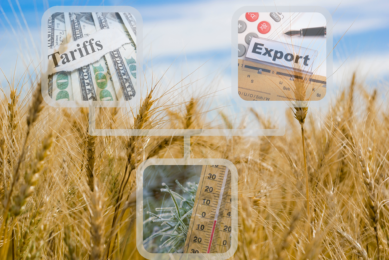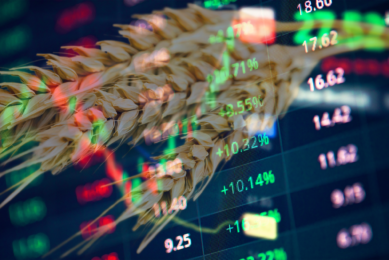BRICS gets one step closer to establishing grain exchange

BRICS members welcomed the proposal of establishing an inter-organisation grain exchange, according to a declaration passed following a 3-day bloc summit in Kazan, Russia.
In the document, BRICS members affirmed the need to develop a fair agricultural trading system and implement resilient and sustainable agriculture.
We commit to minimise disruptions and promote rules-based trade in agriculture and fertilisers with the view to ensure a continuous flow of food and essential inputs for agricultural production which should be exempted from undue restrictive economic measures, inconsistent with WTO rules, including those affecting producers and exporters of agricultural products as well as business services with regard to international shipments,”
The declaration stated
“In this regard, we welcome the initiative of the Russian side to establish a grain [commodities] trading platform within BRICS and to subsequently develop it, including expanding it to other agricultural sectors,” the declaration added.
Influence on global grain prices
During the past year, Russia has been lobbying for the idea of setting up infrastructure for building BRICS, an alliance of 9 emerging economies.
The Russian Union of Grain Exporters described the proposed grain exchange as an analogue of the international oil cartel for the global grain market. This comparison suggests that the exchange could potentially have a significant influence on global grain prices and trade dynamics.
Challenges in reaching consensus
However, it was not entirely clear whether other BRICS members would buy the idea, since unlike OPEC the organisation consist of not only grain exporters, but also of the biggest importers. This diversity of interests within BRICS could potentially lead to challenges in reaching consensus on the structure and function of the exchange.
Speaking during the Kazan summit, Putin once again reaffirmed his intention to take the project off the ground. He claimed that among other things the BRICS grain exchange “will help protect national markets from “negative external intervention, speculation and attempts to create artificial food shortages.”
$1 trillion turnover
Trading of agricultural and related products on a BRICS commodity exchange could exceed $1 trillion in future, the CEO of Russia’s Grain Exporters Union, Eduard Zernin, head of the Russian Union of Grain Exporters, said in a follow-up statement.
Beating this goal, Zernin continued, would make it one of the world’s largest markets for agricultural products and a serious factor in strengthening BRICS influence in the area of global food security.
Zernin also added that mentioning the Grain Exchange in the Kazan declaration would facilitate the start of work on establishing the relevant infrastructure.
“Now it is possible to begin the practical implementation of the project. This will require substantial organisational efforts, not only from agricultural agencies but also from the financial authorities of BRICS countries, since exchanges, including commodity, are in their area of responsibility,” Zernin said.











